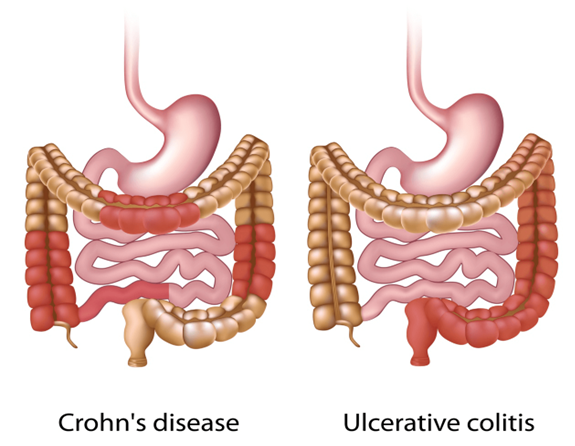

Ulcerative colitis is a chronic inflammatory bowel disease (IBD) that causes inflammation and ulcers in the lining of the large intestine (colon) and rectum. Inflammation can cause the lining of the colon to become swollen and tender, and it can also lead to the formation of ulcers. These ulcers can bleed and cause pain and cramping.
The exact cause of ulcerative colitis is still unknown, but it is believed to result from a combination of genetic, environmental, and immune system factors. It is thought to involve an abnormal immune response, where the immune system mistakenly attacks the healthy cells of the colon, leading to inflammation and tissue damage.

These symptoms can range from mild to severe and may come and go in episodes known as flare-ups.

Crohns Disease: A chronic inflammatory bowel disease that affects the lining of the digestive tract, involving any part of GI Tract (from Mouth to Anus).
Crohn’s disease can sometimes cause life-threatening complications.
Crohn’s disease can cause abdominal pain, diarrhoea, weight loss, anaemia and fatigue. Some people may be symptom-free most of their lives, while others can have severe chronic symptoms that never go away.






© 2025 Enactis. All Right Reserved.
Designed & Developed by  Innov Touch Technologies Pvt Ltd.
Innov Touch Technologies Pvt Ltd.